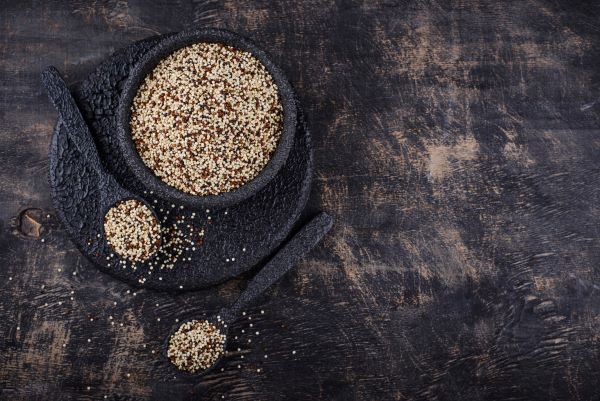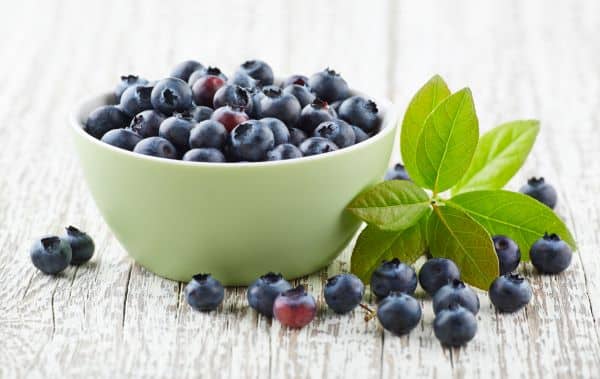As 2024 unfolds, the journey towards healthier eating habits continues to gain momentum. Amidst a plethora of dietary choices, certain foods stand out for their exceptional nutritional benefits. This blog post delves into seven such foods, each promising to enhance well-being and cater to diverse palates. From the heart-healthy fats in avocados to the protein-packed quinoa, these foods are not just nutritious but also versatile in the culinary world. Embracing these ingredients can be a delightful and beneficial journey towards a healthier lifestyle in 2024.
Contents
Walnuts

Renowned for their omega-3 fatty acid content, walnuts are a nutritional powerhouse, essential for brain health and reducing inflammation. A handful of these nuts can contribute significantly to daily nutritional needs, offering a blend of proteins, healthy fats, and fiber. Their ability to support heart health by lowering bad cholesterol levels makes them a must-have in any health-conscious diet. Moreover, walnuts are rich in antioxidants, which combat oxidative stress and inflammation, two culprits in chronic disease formation.
Incorporating walnuts into daily meals is both effortless and delicious. They can be sprinkled over salads for a crunchy texture or blended into smoothies for a nutty flavor. Bakers can appreciate walnuts in their whole or crushed form in bread, cakes, and other baked goods. For a savory twist, they can be added to pasta dishes or used as a meat substitute in vegetarian meals. Their versatility in both sweet and savory dishes makes walnuts a valuable addition to diverse recipes.
Kale

Kale, a leafy green vegetable, has risen to prominence due to its dense nutritional profile. It is loaded with vitamins A, C, and K, and is rich in minerals like calcium and potassium. These nutrients are vital for maintaining strong bones, supporting heart health, and aiding in digestion. Kale’s high fiber content also makes it excellent for digestive health, while its low-calorie count is ideal for weight management. The presence of powerful antioxidants like quercetin and kaempferol contributes to its anti-inflammatory and anti-cancer properties.
However, kale’s somewhat bitter taste can be a hurdle for some. To counter this, it can be sautéed with garlic or mixed with sweet fruits in a smoothie. Massaging kale leaves with a bit of olive oil and salt softens them, making them more palatable in salads. Baking kale with a sprinkle of seasoning can transform it into crispy chips, a healthy alternative to traditional snacking options. Experimenting with kale in soups, stews, or as a pizza topping can also introduce its benefits in a more flavorful form.
Avocado

Avocado stands out as a source of heart-healthy monounsaturated fats, crucial for reducing the risk of heart disease. Its creamy texture and rich flavor make it a favorite among health enthusiasts and food lovers alike. Loaded with potassium, more than bananas, avocados help in maintaining electrical gradients in the body’s cells and reduce blood pressure. They are also a great source of fiber, contributing to weight loss and metabolic health. The versatility of avocados extends beyond their nutritional value, as they provide essential vitamins like Vitamin K, Vitamin E, Vitamin C, and B-Vitamins.
Avocados can be used in a variety of dishes, transcending the famous guacamole. They make a great addition to salads, giving them a creamy texture, or can be used as a spread on toast for a nutritious breakfast. In smoothies, they add creaminess and a nutrient boost without overpowering other flavors. Creative cooks use avocados in desserts like chocolate mousses or brownies, providing a healthier alternative to traditional ingredients. Their ability to blend seamlessly into different cuisines and meal types makes them a staple in modern kitchens.
Quinoa

Quinoa, often labeled a ‘superfood’, is prized for its high protein content, containing all nine essential amino acids. This makes it an excellent plant-based protein source, especially important in vegetarian and vegan diets. It is also high in fiber, magnesium, B vitamins, iron, potassium, calcium, phosphorus, vitamin E, and various beneficial antioxidants. These nutrients make quinoa beneficial for metabolic health, including improved blood sugar control. Gluten-free, it’s an ideal food choice for those with gluten intolerance, offering a nutritious alternative to traditional grains.
Incorporating quinoa into daily meals is simple and diverse. It can be used as a base for salads, making them more filling, or as a side dish to replace rice or pasta. Quinoa can be added to soups and stews for extra texture and nutrition, or used in baking to add a healthy twist to bread and muffins. For breakfast, cooked quinoa can be mixed with fruits and nuts for a wholesome porridge. Its subtle, nutty flavor and versatility make it a popular ingredient in a variety of dishes.
Blueberries

Blueberries are celebrated for their high antioxidant levels, particularly anthocyanins, which reduce the risk of heart disease. Their antioxidant properties also make them powerful against oxidative stress, contributing to aging and certain diseases. Low in calories but high in nutrients, they are an excellent source of vitamin C, vitamin K, and manganese. Regular consumption of blueberries can improve memory and cognitive function, making them beneficial for brain health. The high fiber content in blueberries also aids in digestion and contributes to overall health.
Integrating blueberries into the diet is enjoyable and easy. They can be eaten fresh as a healthy snack or added to cereals, yogurt, or oatmeal for breakfast. Blueberries also make a great addition to smoothies, offering a natural sweetness and nutrient boost. For baking enthusiasts, blueberries can be used in muffins, pies, and pancakes, providing a burst of flavor and health benefits. They can also be cooked down into a sauce or jam, adding a delightful twist to various desserts and savory dishes.
Sweet Potatoes

Sweet potatoes are rich in fiber, vitamins, and minerals, particularly Vitamin A, which is essential for maintaining healthy vision, skin, and immune function. They are an excellent source of beta-carotene, an antioxidant that gives them their vibrant orange color. This antioxidant is converted into vitamin A in the body and is essential for good health. Sweet potatoes also provide other health benefits, such as regulating blood sugar levels and improving digestive health due to their high fiber content. Their sweet taste and starchy texture make them a popular and versatile food choice.
Cooking methods for sweet potatoes vary widely, enhancing their natural sweetness and versatility. They can be baked, boiled, roasted, or mashed, making them suitable for a range of dishes. In baking, sweet potatoes add moisture and natural sweetness to bread, muffins, and cakes. They can also be sliced into fries or chips for a healthier alternative to traditional potato snacks. For savory meals, sweet potatoes can be stuffed or used in curries, stews, and soups, adding nutrition and flavor.
Greek Yogurt

Greek yogurt is celebrated for its creamy texture and high protein content, making it a filling and nutritious food choice. It is also a rich source of probiotics, beneficial bacteria that support gut health. Greek yogurt contains less lactose than regular yogurt, making it easier to digest for those with lactose intolerance. It is also a good source of calcium, essential for bone health, and B vitamins, which are vital for energy production. The versatility of Greek yogurt extends beyond its health benefits, as it can be used in both sweet and savory dishes.
Greek yogurt can be enjoyed on its own, mixed with fruits and nuts for a healthy breakfast or snack. It can also be used as a base for smoothies, adding creaminess and protein. In cooking, Greek yogurt can be used as a substitute for cream or mayonnaise, offering a healthier alternative without compromising on texture. For those who enjoy baking, Greek yogurt can be incorporated into cakes, muffins, and bread, providing moisture and reducing the need for added fats. Its ability to blend with various flavors makes it a valuable addition to a range of recipes.
The Bottom Line
The journey to a healthier lifestyle in 2024 can be both delicious and nutritious with the incorporation of these seven foods. Each brings a unique set of benefits, from the heart-healthy fats in avocados to the probiotics in Greek yogurt. Not only do they offer immense health benefits, but they also provide culinary versatility, making healthy eating enjoyable and sustainable. Embracing these foods in daily diets can lead to improved overall health and well-being, proving that nutritious choices do not have to come at the expense of flavor or variety.


